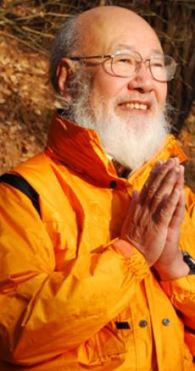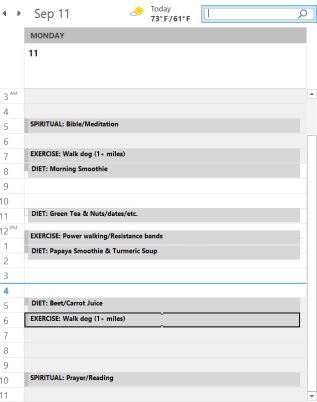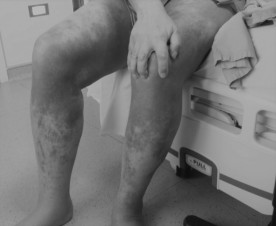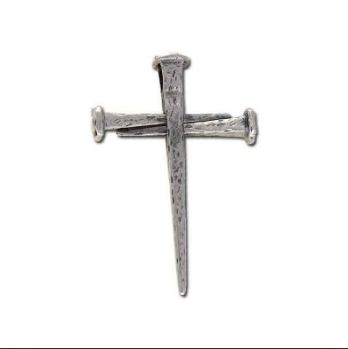“Better to be a warrior in a garden, than a gardener in a war,” goes a credo by which martial artists live.
We with The Big C are like gardeners thrown into war. Our challenge is like no other we have faced, as professionals, as parents even as athletes and soldiers. We need new skills, new tools, and a willingness to adapt, and we need them now.

The incredible Shin Terayama showed an absolute willingness to adapt. A Japanese physicist who had worked impossible hours for two decades (usually 18 hour days), in 1984 he found himself out of work and doomed by metastatic kidney cancer. But he lives to this day.
Shin shucked off his old life for a drastically new one. He was no longer a physicist, but a survivor in training. He developed a spiritual and dietary regimen that included (among other elements) a whole-food diet; chakra work; breathing exercises; and playing the cello he had long neglected for work. He arose at 4:30 every morning to begin his regimen, and within four years (he had been given three months, at best), he was cured.
Shin dedicated his life to his healing, which we must be prepared to do.
A champion’s discipline
Something all champions have in common, be that champion a recording artist, NFL player, New York Symphony cellist, prima ballerina, or survivor like Shin Terayama, is discipline. Enormous discipline.
The subject of discipline practically mandates inspirations from the military or professional sports. But those dedicated people are disciplined warriors, already.
A “gardener” who described her discipline eloquently is Associate US Supreme Court Justice Sonia Sotomayor, who at age seven was diagnosed with Type 1 diabetes. (She’s now 63.) She describes diabetes as a central part of her life that taught her discipline and moderation. “I’ve trained myself to be super-vigilant because I feel better when I am in control,” she said, referring to all walks of life—including studying law at Yale.
Another example, one I witnessed personally, is that of Mick Jagger.
In late summer of 2005, I worked next door to a ballet studio in Boston’s South End. One afternoon, a limo pulled up to the studio. A lanky older guy got out, carrying a boombox stereo. The driver said something like, “I’ll be here when you’re ready, Mr. Jagger.”
For three tireless hours, Jagger strutted from one corner of the studio to the other, singing aloud to “Start Me Up” and “It’s Only Rock ‘n Roll.” He was 62 at the time. But The Stones were playing Fenway Park the next night, and he was going to give his fans the full Mick. That’s discipline.
Why do we need discipline? Isn’t treatment enough?
Some of us Big C folk need not change a thing, other than to let our healers work their wizardry. But alas, some cancers carry a grimmer prognosis. Leukemia carries a far lesser chance of survival than prostate cancer, and acute myeloid leukemia (AML—my brand), carries even less.
Still, I see it as the difference between trying out for the high school basketball team, or aiming for the NCAA. There are few contenders for the high school team, tens of thousands for a college slot. So, I’d better train hard.
Survival is a form of training. When even the most brilliant treatment offers little hope, we need well-crafted survival regimens, and the discipline to stick with them.
 My own daily regimen is pictured at right. I don’t complain about it, or cheat on it; I trust in it. Note that I include three broad categories, being 1) Spiritual, 2) Diet, and 3) Exercise. I talk about the need for all three in There’s no one cancer cure. There are dozens. But choose wisely. To recap, these integrated therapies augment traditional cancer treatment with those other, powerful elements.
My own daily regimen is pictured at right. I don’t complain about it, or cheat on it; I trust in it. Note that I include three broad categories, being 1) Spiritual, 2) Diet, and 3) Exercise. I talk about the need for all three in There’s no one cancer cure. There are dozens. But choose wisely. To recap, these integrated therapies augment traditional cancer treatment with those other, powerful elements.
Please do not screech at me about exercise. Of course, brutal chemo/radiation courses may preclude physical activity. But we must defy the muscle atrophy and learned helplessness of long bedrest, as best as we are able. I went through weeks when exercise was impossible; but when it became possible, I was on a mini stairstepper (small enough for my hospital room) for five minutes, 10 minutes, 20 minutes as I could manage, and working my muscles with resistance bands.

And please do not scold “You judgmental jackass, I’d dearly love to dedicate my life to being a survivor, but I’m a teacher/parent/business owner, first.” You must be a survivor, first. I’m a freelance journalist who works as many hours as I can get. But, work can wait five minutes while I quaff a life-giving, gruesome-tasting beet/carrot/ginger/garlic smoothie, or for 10 minutes while I pray.
Discipline means consistency
Something NFL coach Vince Lombardi said is that “Practice does not make perfect. Only perfect practice makes perfect.”
Football practice is consistent and grueling, spent hammering away at your weaknesses. So is any worthwhile practice. At some point, cellist Yo Yo Ma quit replaying “Twinkle, Twinkle, Little Star,” and attacked the infinitely more difficult Chopin Cello Sonata in G minor, Op. 65.
My pal Bill is a Master 5 Middle/Heavyweight Pan-American Champion in Brazilian Jiu Jitsu. He achieved that in between fatherhood, caring for elderly parents, and a career as a pharmaceutical CEO—each by itself an excuse to avoid practice. But he doesn’t.

He says of consistency in his training, “If you had a bad day, you train. Feel tired? You train. Illness, or a heavy work schedule? You have the mindset that you have a schedule, and you make the time.” Not even global travel for work interrupted his training. He would travel to Tokyo and hold meetings in the morning, then spend nights training at a dojo. (Similarly, Jagger finds a gym in every city that The Stones tour.)
St. Paul likened achieving eternal life—the ultimate survival—to athletic discipline:
Don’t you realize that in a race everyone runs, but only one person gets the prize? So run to win! All athletes are disciplined in their training. They do it to win a prize that will fade away, but we do it for an eternal prize. So I run with purpose in every step. I am not just shadowboxing. I discipline my body like an athlete, training it to do what it should. (1 Cor. 24-27, NLT.)
Don’t surrender stuff; offer it up, gladly, in exchange for life
Recall that Sonia Sotomayor was diagnosed with Type 1 diabetes at age seven, so undoubtedly remembers what birthday cake tastes like. She might really enjoy a corner piece with all the frosting on her 64th birthday, instead of a bran muffin with a candle in it. (I’m guessing.)
Discipline is focusing with vigor upon what you stand to gain, not mourning what you give up.
But discipline is focusing with vigor upon what you stand to gain, not mourning what you give up. Singer/actress Julie Andrews said, “Some people regard discipline as a chore. For me, it is a kind of order that sets me free to fly.” She achieved what she has through thousands of hours of practice, which she in no way resents.
An MIT admissions officer I once interviewed said of the students, “There’s something different about these kids. They know from childhood they want to come here and nothing stops them, not even poverty.” And nothing gets in the way of their study. I lived near MIT, and on any Friday night, Saturday night or Halloween, its libraries were full and the labs lit up. No physicist ever won the Nobel Prize by thinking, “But it’s Cinco de Mayo! I wanna get hammerhead drunk and screw like a mink!”
After my diagnosis, survival became my MIT admission. I shucked off any threat to it, and took up any dietary/spiritual/physical practice I thought offered hope.
If I put all that into mournful “But I want it!” or “But I don’t wanna!” statements, it might read:
- “But I liked smoking hand-rolled cigarettes with rough Russian tobacco!”
- “But I miss Grey Goose martinis with onion!”
- “But I love eating steak tips and ‘taters in pubs, and washing it down with two pints of Stella Artois!”
- “But I don’t wanna wait for movies to come to Netflix, I wanna see James Bond flicks on the big screen in a germy theatre!”
- “But I don’t wanna get up at 5 AM and pray or write in my journal or meditate, I wanna sleep till 7.”
- “But I hate beets, I don’t care about their cytotoxic and anti-inflammatory properties, they taste poopy!”
I could boo-hoo like this all day. But I don’t. Most of those things are just indulgences (which may have contributed to my AML). If the price of another decade with Sadie Mae is trading beef tips for beet juice, so be it. (Although, I do eat beef tips and fisherman’s platters, washed down with beer. Perhaps once every four months.)
“This one thing I do, forgetting those things which are behind, and reaching forth unto those things which are before.” (Phil. 3:13, KJV.
Of course, we Big C folk surrender far more than indulgences. We may leave behind the ability to work full time; financial comfort, for years to come; our hair, our energy, our body parts; any certainty of a future. We are robbed of simple joys of family life. Sara and I won’t enjoy a 10th anniversary getaway in October, because even luxury hotel rooms are all skeevy and forensic, as ABC, NBC and CBS remind us yearly in tedious exposés.
So, thanks to AML, much is behind me. Some things I offered up, but I was robbed of others.
In either case, a scripture that I love, also from St. Paul, reads:
“This one thing I do, forgetting those things which are behind, and reaching forth unto those things which are before.” (Phil. 3:13, KJV.)
So, the health habits of a ‘40s tough-guy actor are behind me, and survival is before—if I reach forth unto it. Even then, there’s little chance I’ll make the team. But that chance is infinitely greater if I train hard.
Godspeed.


Very powerful Dan,.Reminds me of The power of Divine Will vs the Law of Karma,. Through Divine Will we can rise above time space reality, allowing the situation take new shape. With it brings ease to let go of things that are no longer serving our greatest good. Certainly makes it look easy 🙂
It is so wonderful that you are sharing your path & integration of self healing methods of body mind & spirit with so many!! Keep up the great work! D
LikeLike
Thanks kindly, Donna! More to share, much more to share. It became clear to me that this battle wasn’t going to be one with chemo alone, there had to be divine will. But, the divine can be influenced. Godspeed.
LikeLike
Thank you Dann. I’ve read this a couple times now and keep it in my mind. “Enormous Discipline.” Thank you again for sharing your journey.
LikeLike
Thank YOU Tammy – I truly hope this helps you on your journey as well. (And I’m eager for your lessons of survival too.)
Godspeed!
DM
LikeLike